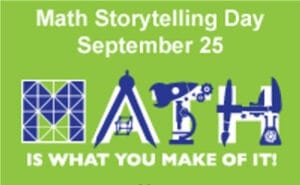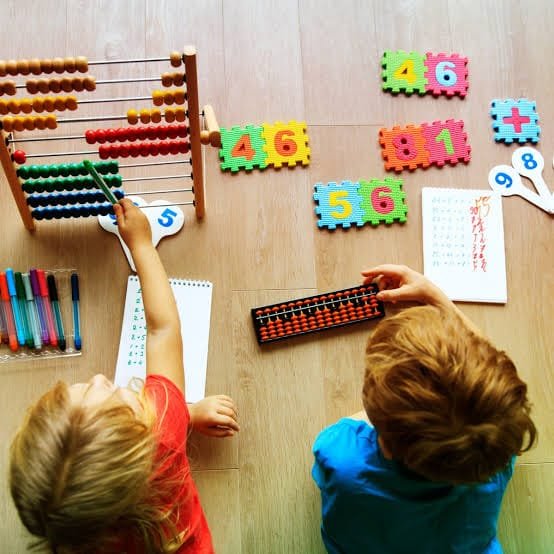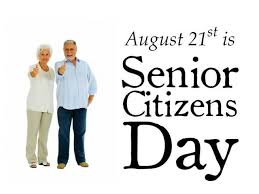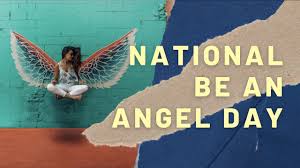Math Storytelling Day – September 25, 2022, history significance why we celebrate
Math Storytelling Day is celebrated each year on September 25. Many people, when they hear the word math, are often immediately uninterested. To be fair, math is a difficult skill to master and requires practice. But who said you can’t master it in a fun way? Math Storytelling Day encourages people to go beyond rote memorization and incorporate storytelling instead to develop more interest in the subject.
HISTORY OF MATH STORYTELLING DAY

Math has been in existence since around 3000 B.C. and has evolved over the years. Some of the oldest math texts from Mesopotamia and Egypt date back to 2000 to 1800 B.C. Math is an extremely important subject for students hoping to pursue a career in science, technology, engineering, or math.
However, without a natural liking towards numbers, the subject can get intimidating and scare people off. This is partly to be blamed on the way math is taught in schools across the globe. The emphasis on memorization instead of learning concepts and then applying them has done more harm than good.
Nevertheless, people have come up with various ways to make math the friend rather than the enemy. One such way is storytelling via math. This can be through games, storybooks, puzzles, videos, and a lot more. The Natural Math Community created Math Storytelling Day in 2009.
Dr. Maria Droujkova was inspired after reading a blog by Seth Godin on “What should I do on your birthday?” Dr. Droujkova decided that Math Storytelling Day should be shared with friends and family on her birthday, which falls on September 25.
Interestingly, the first person to respond to her math stories was Sue VanHattum, who shares the same birthdate on September 25. They wanted to encourage math storytelling in various forms and share it with people across age groups and social circles. Math Storytelling Day has now been celebrated for over a decade and you can join in on the fun, too, by sharing your own set of stories to teach and make people love math.
MATH STORYTELLING DAY TIMELINE
3000 B.C.
Sumerians’ Math
Ancient Sumerians develop a complex system of metrology.
2000 B.C.
Babylonian Math
The Babylonian basis of mathematics starts to develop.
16th Century
Math Progresses in Europe
Progress in mathematics begins in Europe with the algebraic solution of cubic and quartic equations.
17th Century
Math Extends
Mathematicians extend the power of mathematics as a calculatory science with their discovery of logarithms.
RECOMMEND STORIES
- IRCTC’s New Rule: Soon You Can Change Your Travel Date Without Paying a Cancellation Fee
- Dude Movie Review: Pradeep Ranganathan’s Youthful Rom-Com Balances Love, Humor, and cast
- SpaceX Launches 28 Starlink Satellites on Record-Tying 130th Falcon 9 Flight of 2025, Boosting Global Internet Coverage
- 24 Transgender People in Indore Attempt Suicide Seeking Justice, Police Launch Probe and Promise Swift Action
- Cough Syrup 22 Deaths: ED Raids Sresan Pharma Chennai Over Money Laundering Probe
HOW TO CELEBRATE MATH STORYTELLING DAY
Teach math via storytelling
Math can be easy to learn if you make it fun. There are many ways to teach it via stories, including logic, puzzles, patterns, props, characters, etc. It will definitely be a lot less intimidating than only seeing numbers on paper.
Make a math puzzle
You’re not alone if you still do not understand many concepts of math. But this is the day you can change that. Set aside a few hours in the day to brush up on some basics. You can then make an interesting math puzzle to revise what you have learned.
Create a math storybook
Every individual has to learn math once in their lifetime. You can make this easy by creating a small math storybook, maybe for kids, so they can start enjoying the subject from a young age. Math won’t be so intimidating for them when they grow up.
5 INTERESTING FACTS ABOUT MATH
The word ‘hundred’
The word ‘hundred’ comes from the old Norse term, ‘hundrath’ and it actually means 120 and not 100.
‘Forty’ spelling
The only number that is spelled with letters arranged in alphabetical order is ‘forty.’
The descending one
The only number to be spelled with letters in descending order is ‘one.’
The obelus
The symbol for division in math is called obelus.
‘Math’ v.s. ‘maths’
Since Americans regard ‘mathematics’ as a singular noun, they call it ‘math’ and not ‘maths.’
WHY WE LOVE MATH STORYTELLING DAY
Math develops better problem-solving skills
Math encourages us to think analytically and have better reasoning abilities. These are important as they help us solve problems and come up with creative solutions. It is thus important that we learn math, and storytelling can help make that process easier.
Used in every career
Math finds a place in almost every career in some way or the other. Even marketing now places great emphasis on analytics and returns, which needs math skills. Math Storytelling Day encourages a different way to teach math to help people get over the fear of intimidating numbers.
Math helps you read time
Without knowing math, it would be difficult to read the time. You can even use a clock as a prop in math storytelling and teach it that way. The importance of math in our daily lives cannot be emphasized more.
Sandeep Raiza — Content Writer, Website Designer, SEO Strategist, and WordPress Expert AI specialist delivering impactful digital solutions that drive business growth.Combining creative storytelling with technical expertise.









